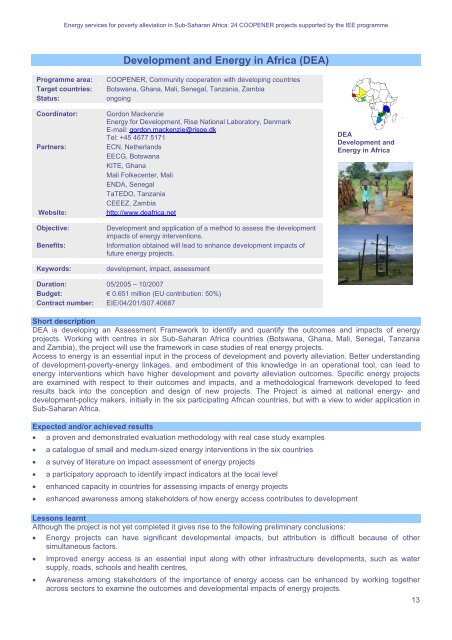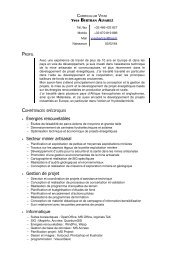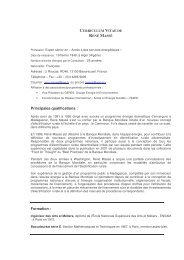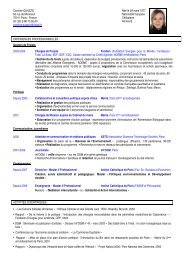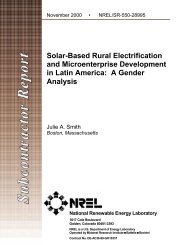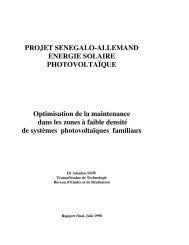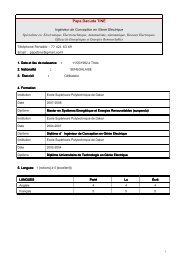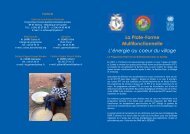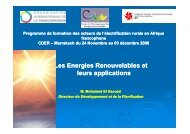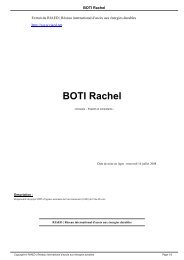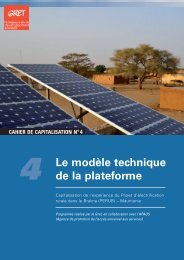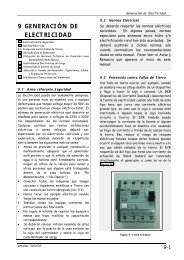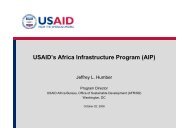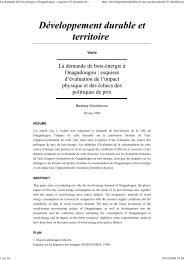Download - RIAED
Download - RIAED
Download - RIAED
Create successful ePaper yourself
Turn your PDF publications into a flip-book with our unique Google optimized e-Paper software.
Energy services for poverty alleviation in Sub-Saharan Africa: 24 COOPENER projects supported by the IEE programmeDevelopment and Energy in Africa (DEA)Programme area:Target countries:Status:Coordinator:Partners:Website:Objective:Benefits:Keywords:COOPENER, Community cooperation with developing countriesBotswana, Ghana, Mali, Senegal, Tanzania, ZambiaongoingGordon MackenzieEnergy for Development, Risø National Laboratory, DenmarkE-mail: gordon.mackenzie@risoe.dkTel: +45 4677 5171ECN, NetherlandsEECG, BotswanaKITE, GhanaMali Folkecenter, MaliENDA, SenegalTaTEDO, TanzaniaCEEEZ, Zambiahttp://www.deafrica.netDevelopment and application of a method to assess the developmentimpacts of energy interventions.Information obtained will lead to enhance development impacts offuture energy projects.development, impact, assessmentDEADevelopment andEnergy in AfricaDuration: 05/2005 – 10/2007Budget: € 0.651 million (EU contribution: 50%)Contract number: EIE/04/201/S07.40687Short descriptionDEA is developing an Assessment Framework to identify and quantify the outcomes and impacts of energyprojects. Working with centres in six Sub-Saharan Africa countries (Botswana, Ghana, Mali, Senegal, Tanzaniaand Zambia), the project will use the framework in case studies of real energy projects.Access to energy is an essential input in the process of development and poverty alleviation. Better understandingof development-poverty-energy linkages, and embodiment of this knowledge in an operational tool, can lead toenergy interventions which have higher development and poverty alleviation outcomes. Specific energy projectsare examined with respect to their outcomes and impacts, and a methodological framework developed to feedresults back into the conception and design of new projects. The Project is aimed at national energy- anddevelopment-policy makers, initially in the six participating African countries, but with a view to wider application inSub-Saharan Africa.Expected and/or achieved results• a proven and demonstrated evaluation methodology with real case study examples• a catalogue of small and medium-sized energy interventions in the six countries• a survey of literature on impact assessment of energy projects• a participatory approach to identify impact indicators at the local level• enhanced capacity in countries for assessing impacts of energy projects• enhanced awareness among stakeholders of how energy access contributes to developmentLessons learntAlthough the project is not yet completed it gives rise to the following preliminary conclusions:• Energy projects can have significant developmental impacts, but attribution is difficult because of othersimultaneous factors.• Improved energy access is an essential input along with other infrastructure developments, such as watersupply, roads, schools and health centres,• Awareness among stakeholders of the importance of energy access can be enhanced by working togetheracross sectors to examine the outcomes and developmental impacts of energy projects.13


